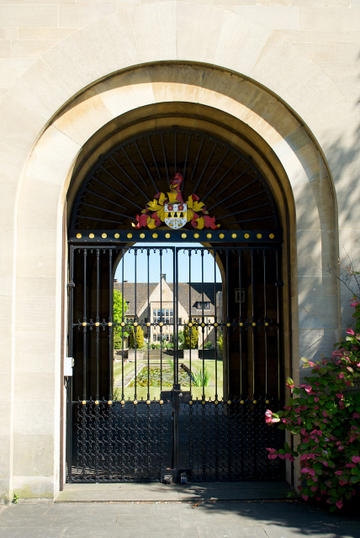AN INTERVIEW WITH OUR ALUMNUS: Ken Cheong

Ken was most recently the Director of Asia-Pacific operations at Inmarsat Plc. - a corporation providing global mobile satellite communications services and solutions for more than four decades.
At Oxford, Ken studied his PPE degree from 1975-78 at St Edmund's College, followed by an MPhil and a DPhil in Economics at Nuffield College until 1981. As an alumnus, Ken has recently returned to the Department to offer mentorship to a Graduate students.
Tell us about your life and career.
I was born in Hong Kong and came to the UK age 8. My parents were Australian so I had a global outlook on life from infancy. I studied at Oxford between 1975-81, PPE at St Edmund Hall followed by a MPhil and DPhil in Economics at Nuffield.
After Oxford I joined Deloitte as a management consultant after being selected through a direct recruitment process into the Management Consultancy division of the firm. As such, I was thrown in the deep end, working along side the Partner in charge of the London office within a few weeks of arrival. At that time, I consulted for a European restructuring scheme for the steel industry. Oxford gave me sufficient confidence to take on this challenge. From here I worked as an economic consultant for about a third of my career. Quite a bit of this was related to economic regulation of private utilities. The other two-thirds was spent mainly with Inmarsat, a global satellite company. For around 10 years I was Director for the Asia/Pacific region. Economics has always been important to my working life and certainly influenced how I would approach a problem.
Is there anything from your career or personal life which you are particularly proud of?
I published a paper in 2015 that was critical of economic regulators which did not go down well with my employer at the time but feel vindicated by some of the recent headlines concerning the water sector.
I represented myself in a long running property litigation and don’t think I could have done that without the confidence of an Oxford background. One of the cases Veena v Cheong is often quoted in landlord and tenant textbooks. I tried to analyse from an economic perspective what was meant by a “reasonable” service charge and apparently this has been helpful to leasehold tenants up and down the country.
I was always quite sporty and represented Oxford in soccer (privileged to walk out at Wembley) and athletics. I can still ski black slopes which is not bad for my age I suppose.
I also learnt some salient lessons restoring a classic Ferrari a few years ago. Don’t!
What did you most enjoy about your time studying economics at Oxford?
You just meet some incredible people, fellow students and dons. One day at Nuffield I found myself having lunch seated between Professors Sen and Mirlees, both of whom went on to become Nobel laureates.
How has your degree contributed to your career success?
Yes indeed. I would not have got several of my jobs without an advanced economics degree. An Oxford doctorate was highly regarded in China and other parts of Asia. I was incredibly lucky to travel around South East Asia in the early part of the millennium just as many markets were opening up.
Did Oxford influence you and your career choice?
It certainly helped me early on in my career. Deloitte only hired one person a year direct to the management consultancy part of the firm. The people I met at Oxford also helped me at different crossroads in my career. It also allowed me to analyse risk and know when it was worthwhile undertaking certain investment opportunities.
What is your next goal - in your career or in your personal life?
Well, I’m retired but seem busier than when I was working. I manage quite a large property portfolio as well as financial investments and so forth. My mother is still living in Australia so I travel out there quite a bit. I started to learn Thai a few years and want to get more fluent.
Do you have any advice for someone considering an economics degree at Oxford?
Do something you are really interested in, as that passion will always come across during the hire process. Also think about business opportunities out of the box rather than just a conventional job search. AI is going to change the world in ways we have not yet foreseen so I guess my younger self would be following that technological development quite closely.
What are three aspects of your time at Oxford that you value the most?
Lifelong friends and a valuable network of contacts (some are even presidents, but I won’t say who).
Independence of thought.
Confidence to take on difficult intellectual challenges.


